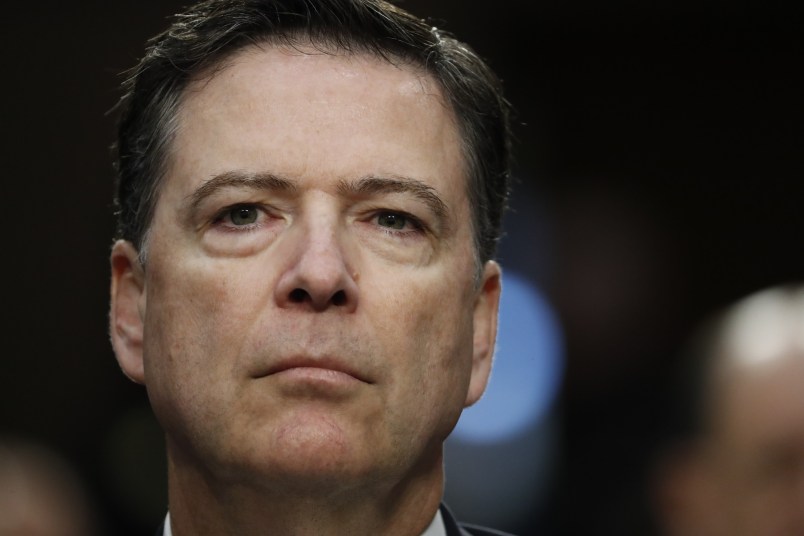Just one day after former FBI Director James Comey filed a lawsuit to block a House subpoena for him to testify in a closed-door deposition, a federal judge heard arguments on the matter in a Washington, D.C. courthouse.
The House demanded that Comey appear for the interview on Monday, prompting the judge to attempt to address the lawsuit quickly. Comey’s lawyers must respond to the House’s filing defending the subpoena by Sunday afternoon, and the judge could issue a ruling on the matter as soon as Monday.
The lawyer representing the House, Thomas Hungar, said that the committees were willing to push the Comey interview back until Tuesday. However, Comey’s lawyer David Kelley argued that changing the date on such short notice would violate House rules. Judge Trevor McFadden indicated he would not address the issue of the deposition’s timing, only the merits of Comey’s lawsuit.
Comey argued in the lawsuit that a private interview with House committee staffers would open him up to selective leaks that could misrepresent his testimony, and Kelley echoed that in court on Friday afternoon.
“It’s an abuse of the process,” Kelley said.
Hungar countered that just because the interview would take place behind closed doors, Comey would not be prohibited from speaking about his testimony or releasing a transcript of the interview. He said that the House was not looking to hold a private deposition due to concerns about national security or law enforcement information, but because the deposition process is more efficient.
Hungar also dismissed Comey’s claim that he could be damaged in some way by committee members’ comments about the interview.
“That makes absolutely no sense whatsoever,” he said.
McFadden quizzed Kelley on whether his client’s ability to speak publicly about the interview would change anything. In response, Kelley argued that it’s an impossible burden on Comey to detail his testimony after the fact and argued that the public would be left in the dark on body language and other context.
“They just want to zero in and gang up,” Kelley argued.
Hungar claimed no district court has ever quashed a congressional subpoena and argued that Congress has “absolute immunity” under the Constitution’s Speech and Debate clause. He said it would be an “extraordinary thing for the court to interfere in Congress’ investigative proceedings.”
Kelley, however, argued that this was McFadden’s “opportunity” to be the first.







IANAL, but if Comey loses his suit, can he just go into the closed hearing and remain silent throughout? Or would that trigger some type of contempt of Congress ruling?
I am also not a lawyer but if he chooses not to reply they will typically ask him what his legal, emphasis on legal, grounds are for refusing to answer the question.
“Hungar countered that just because the interview would take place behind closed doors, Comey would not be prohibited from speaking about his testimony or releasing a transcript of the interview.”
bookmarking
“He said that the House was not looking to hold a private deposition due to concerns about national security or law enforcement information, but because the deposition process is more efficient”
k
Refusing to answer (without claiming any privilege against having to testify – such as attorney-client privilege) would open him up to contempt of Congress charges.
Figured it would be something like that.
Personally, I’d love the optics of Mr. Comey being shuttled off to jail each night for refusing to answer questions until the Dem’s re-take control.
I do recognize that Mr. Comey might not share that perspective…